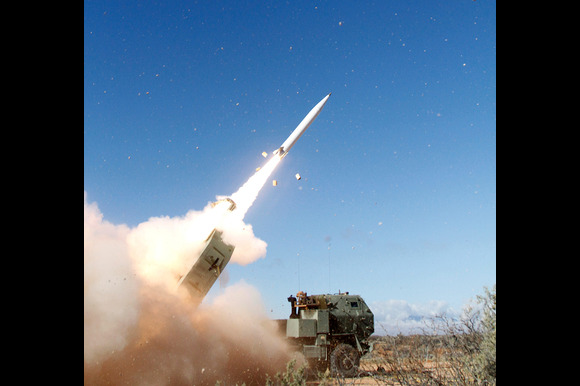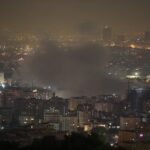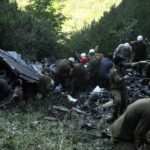Tehran, Iran – Iran’s Foreign Minister Abbas Araghchi has accused the United States of enabling and supporting Israel’s recent military attacks on Iranian territory, saying Washington must bear responsibility for the unfolding conflict.
Speaking during a news conference in Tehran on Sunday, Araghchi said Iran possesses “well-documented and solid evidence” that American forces and their regional bases have supported Israel’s military operations. He further emphasized that U.S. President Donald Trump has publicly admitted foreknowledge of the strikes, and confirmed that more are expected.
“The attacks by the Zionist regime could not have occurred without the consent, coordination, and weapons of the United States,” said Araghchi. “In our view, this makes the U.S. a direct accomplice and it must accept responsibility for its role.”
Iran Demands U.S Condemn Attacks on Nuclear Sites
Araghchi also revealed that Iran had received indirect messages from Washington, disavowing involvement in Israel’s strikes on critical nuclear infrastructure, including the Natanz facility in Isfahan province. However, Tehran has rejected these denials.
“Due to the evidence at hand, we do not accept these claims,” said the foreign minister. “We call on the U.S. to make its position public and explicitly condemn this aggression, especially the attack on a peaceful nuclear site, which is a blatant violation of international law.”
He added that if the U.S. is sincere about upholding nuclear non-proliferation norms, it must distance itself from Israel’s military campaign.
Israel’s Objective: Sabotage Diplomacy, Says Iran
The Iranian official underscored the timing of the strikes, which came just as a sixth round of Iran-U.S. nuclear negotiations, brokered by Oman, was scheduled for Sunday. He accused Israel of deliberately provoking conflict to derail diplomacy.
“Israel has historically worked to undermine dialogue, and it is doing so again,” Araghchi warned.
Heavy Toll on Civilians and Infrastructure
Iranian officials say the Israeli attacks, which began on Friday, have so far killed at least 80 people, including multiple high-ranking military commanders, scientists, and university professors. Civilian casualties are also mounting, with children among the dead.
In retaliation, Iran has conducted two consecutive nights of missile and drone attacks on Israel, targeting Tel Aviv and Haifa. At least 10 Israelis have died, with dozens more injured.
“Our recent strikes have begun to target Israel’s energy sector after it targeted ours,” Araghchi said, referring to Israeli strikes on Iranian refineries, power plants, and oil reserves.
Explosions Rock Tehran and Strategic Gas Facilities Attacked
Early Sunday morning, Israeli strikes hit a fuel depot in Tehran’s western Shahran district, igniting a massive fire that took hours to control. Authorities reported that much of the fuel had been removed beforehand, preventing a larger disaster.
Another strike on Saturday targeted Phase 14 of the South Pars gas field in Bushehr province—one of the world’s largest gas reserves. Araghchi condemned the attack as a “major strategic mistake”, suggesting it was intended to escalate the conflict into a broader regional war.
“The Persian Gulf is a highly sensitive region. Any military action here risks triggering a larger conflict involving the entire region, and potentially the world,” he said.
Israel Warns Iranian Civilians to Avoid Military Sites
Despite mounting international concern, both Iran and Israel have signaled their intention to continue military operations. On Sunday, the Israeli military warned Iranian civilians to stay away from “military weapons production facilities and their support structures,” or risk being caught in future attacks.
Fresh Israeli strikes later that day targeted several areas in Tehran, including Valiasr Square in the city center and Niavaran in the north.
Araghchi reiterated Iran’s position that it is open to halting retaliation — “if Israel stops its aggression.” He urged global powers and international organizations to condemn the attacks and pressure Israel to de-escalate.
Iranian Media: Rallying the Nation Amid Crisis
Iranian newspapers on Sunday focused heavily on the conflict. Hardline publications emphasized retaliation and national unity, while reformist outlets highlighted the gravity of Israel’s military actions.
- Keyhan, aligned with Supreme Leader Ayatollah Ali Khamenei, declared: “We will finish the war and Israel together.”
- Ham-Mihan, a reformist outlet, headlined: “National Battle.”
- Etemad warned of “Israel’s Gamble on a Minefield.”
- Sazandegi ran with: “Slap for Tel Aviv.”
For the first time since the 1980s Iran-Iraq war, Iranian state TV aired a “victory march,” stirring nationalistic sentiments.
Mehdi Chamran, head of Tehran’s City Council, announced preparations to reopen old bomb shelters, including metro stations, underground parking areas, and mosques, due to the absence of newly built facilities.
Flights Cancelled, Remote Work Ordered, and Markets Closed
Government spokeswoman Fatemeh Mohajerani confirmed on Sunday that all commercial flights have been suspended until further notice. She assured the public that steps are being taken to secure fuel and basic necessities in case of prolonged hostilities.
Although the capital’s bazaars, malls, and businesses remain open, government employees have been instructed to work remotely at least until Wednesday, indicating expectations of more airstrikes.
The Tehran Stock Exchange remained closed on Sunday. Its director said the decision to resume operations on Monday would depend on the security situation overnight.
Iranian Currency Plummets Amid Escalating Conflict
The Iranian rial has sharply depreciated since the onset of Israeli attacks. On Sunday, it fell to about 955,000 per U.S. dollar, down from 840,000 before the strikes began. Economists warn that continued instability could further destabilize Iran’s already struggling economy.
As both nations dig in for further confrontation, the international community faces increasing pressure to intervene and prevent a broader regional war that could reshape the Middle East — and ripple across global markets.






